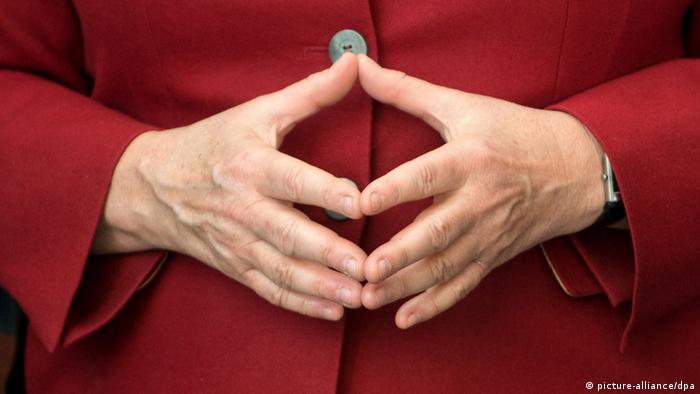
There is a tale repeated by Germans that dates back to 1963.
It speaks of a young girl who had changed into her swimming costume and shuffled reluctantly into the main foyer of her school’s swimming pool. A shy creature, she moved to climb the steps of the highest diving board one by one. Finally, having reached the end of the board, she became paralysed with fear and shivered at the prospect of making the leap. For what felt like an eternity, she stared into the murky abyss calculating the risks involved. After tentatively creeping back and forth for 30 minutes, she glanced at the clock on the wall and jumped. As she glided into the water, the school bell rang out and reverberated across the pool. Angela did what needed to be done.
Dr Angela Merkel, the quantum physicist turned German Chancellor, is far from a one-trick pony. To truly understand her, one must recognise that she is a product of her experiences. Her upbringing shaped who she is today and her approach to tackling global issues. Merkel is a survivor, and what they say about survivors is very often true – ‘what doesn’t kill you makes you stronger’. It is why she remains a veteran European establishment figure, yet also one of its most mysterious. World leaders have attempted to pin down Merkel with charm or charisma to little avail; the beauty of the way Merkel operates is through her enigmatic nature. It may well be this mystery that has contributed to her 16-year tenure. As we have learnt from Germany’s October election, her party – the centre-right CDU – has suffered electorally since she hung up her hat. Her successor Armin Laschet has already suggested that he will step down following an unprecedented defeat, lending further to Merkel’s almost mythological status as the CDU.
Merkel’s political legacy is one that experts will analyse for long to come, but her personal achievements cannot be so easily understood. Sometimes, however, the two are inextricably intertwined. For example, as a young woman and single daughter of a pastor in East Germany, Merkel was patronisingly referred to as ‘das Mädchen’ or ‘the girl’. Her early political life is one dominated by fighting an oppressive all-male group of chauvinists, referred to as the ‘Männerclub’. Helmut Kohl, architect of Germany’s unification, recognised Merkel’s potential and used her as a token East German female in his cabinet. As in much of her life though, she was gravely underestimated and eventually backstabbed Kohl in the most public of manners when a finance scandal arose. Mounting her attack, Merkel showed Germany that a female leader could be as cutthroat as any male counterpart. She used herself as a conduit to progress gender equality – although her critics argue that she has not gone far enough. What is certain, though, is that Merkel has little tolerance for sexism; Merkel’s instrumental role in removing the infamous former Prime Minister of Italy, Silvio Berlusconi, demonstrated this.
As a political agent, she has been a consistently smooth operator, favouring compromise with the opposition and to delay decisions rather than placating her own party. Like the diving board, this is very reflective of her own brand of politics: to be perfectly cautious. This made her somewhat of an outcast amongst her own people; in preferring to place herself on the left of her right-wing party and to gain support from smaller parties, her methods have been viewed as unorthodox. This should not be confused with weakness; her approach consistently neutralised those who presented a threat to her position in the CDU. This is not to say that Merkel did not face significant political challenges that poured question marks over her success. Most notably, situations unfolding at the European level such as the Greek bailout, after having ruled out such measures in 2014, and famously her decisions regarding the Migrant Crisis in 2015 where Merkel’s open-door policy saw refugees flee to Germany. These decisions still face international criticism to this day.
One would have thought that in winning four general elections, Merkel would be confident in the limelight – but she appears uncomfortable being dubbed the ‘most powerful woman in the world’ and does not enjoy the trappings of high office that we might expect. As former US President Barack Obama said about Merkel: ‘very few political leaders can be counted upon to put their principles above any narrow definition of self-interest.’ Merkel had a laser-focus on the issues at hand and made decisions based upon her own experiences of the world; she took steps to ensure Europe never returns to the horrors that dominated the 1940s and acted to forge a future based upon mutual respect. Many may be dissatisfied with the policies she enacted during her time as Chancellor, and in some cases most rightfully so. But as my friend from Munich once said to me, “You would be hard-pressed to find anyone in Germany who doesn’t have at least one significant good thing to say about her.”
As we prepare to bid ‘auf wiedersehen’ to the steady Chancellor that has guided Europe, we must look to the future as a continent and decide, as we make our leaps, if we wish to sink or to swim.
********
Update
As of Wednesday 24th November 2021, the Guardian reports that the German parties of the Social Democrats, Green and FDP have agreed a ‘traffic light’ three-way coalition. This will mean that SPD candidate Olaf Scholz will replace Angela Merkel as the successor to Germany’s Chancellorship. Merkel’s party, the CDU, will therefore for the first time in 16 years go into opposition. The new government, if ratified by each prospective party, is expected to be installed during the week of December 6th 2021. So ends the Merkel reign.
